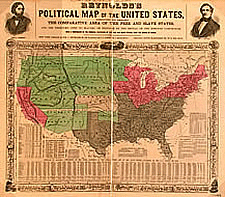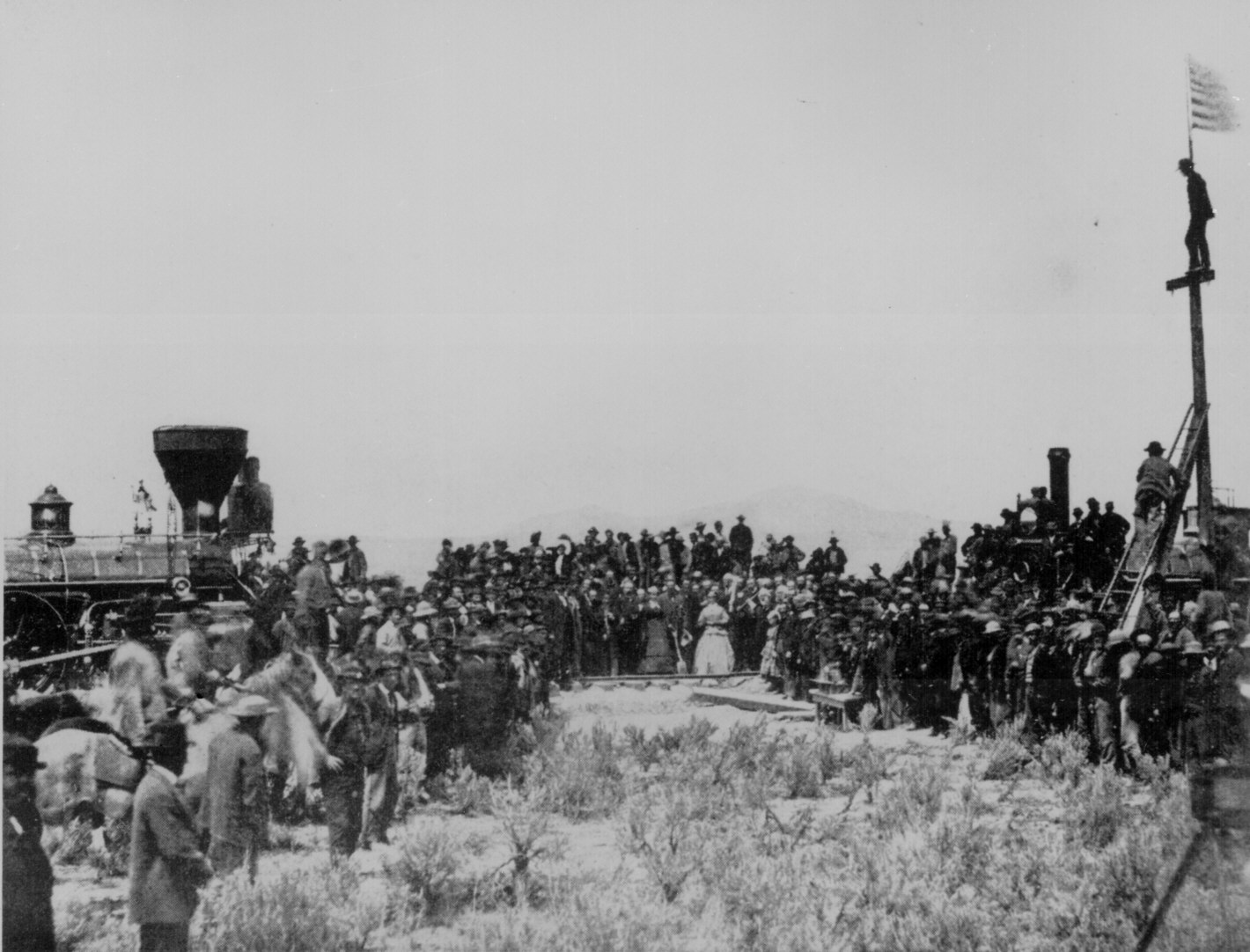|

| Reynold's
Political Map of the United States, 1856. Courtesy of the Library
of Congress. Click on image for full size version |
|
Questions
to consider
1. Why was the idea of the “Slave Power” so powerful in northern
politics in the 1850s?
2.Why did the Kansas-Nebraska Act cause such a political explosion?
3. Why did the Republicans supersede Whigs and Know-Nothings as the main opposition
party?
4. What was the significance of the Dred Scott decision, and what were its implications
for Democrats and Republicans?
Introductory reading
Michael
F. Holt, “Party dynamics and the coming of the Civil War,” from The
Political Crisis of the 1850s (New York: Norton, 1978)
William W.
Freehling, "Stalemate--and the South--shattered", from Road
to Disunion, vol II: Secessionists Triumphant (2007), pp. 517-534
Further
reading
Eric
Foner, “Free Labor: Republicans and Northern Society,” from Free
Soil, Free Labor, Free Men: The Ideology of the Republican
Party Before the Civil War (1970)
Richard
Carwardine, “The Power of Opinion: Lincoln, the Illinois
Public, and the New Political Order, 1854-58” from Lincoln (2003)
Kenneth
M. Stampp, “The Concept of a Perpetual Union,” Journal
of American History 65, (1978), pp. 5-33.
William
E. Gienapp, “The Collapse of the Second Party System,” from
The Origins of the Republican Party, 1852-1856 (1987)
William
E. Gienapp, “Nativism and the Creation of a Republican Majority
in the North Before the Civil War,” Journal of American
History 72 (1985)
Robert W. Johannsen, “The Politics
of Slavery,” from Lincoln, the South and Slavery: The
Political Dimension (1991)
Kenneth M. Stampp, 'The Heart of the Matter: Slavery and Sectionalism,'
ch 5 of America in 1857: A Nation on the Brink (1990)
Primary
sources
Chief
Justice Roger B. Taney, Dred Scott vs Sanford, 1857 (extracts)
Albany, New York, Evening Journal [a Republican newspaper](7 March 1857)
Pittsburgh, Pennsylvania, Gazette
[Republican] (7 March 1857)
Richmond, Virginia, Enquirer [Democratic]
(10 March 1857)
Concord, New Hampshire, New Hampshire
Patriot [Democratic] (18 March 1857)
William
H. Seward, “The Irrepressible Conflict” (1858)
Lincoln, “House Divided” speech
(1858)
Lincoln, “Cooper Union
Address” (1860)
James
Henry Hammond’s “Cotton is King” speech in
Congress, 1858
|
